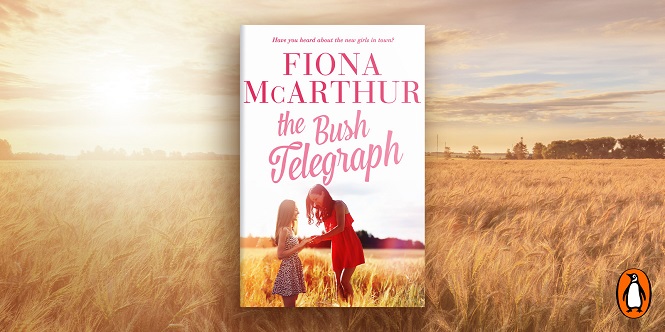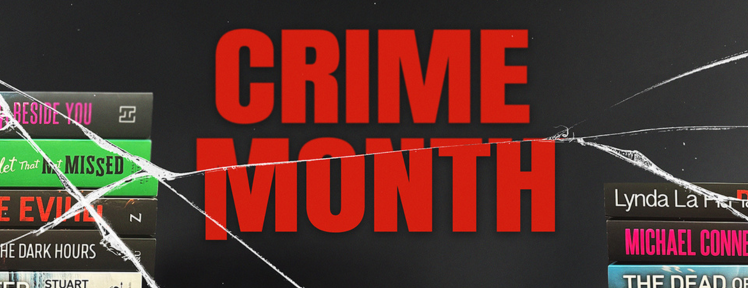Drawing from her life as a rural midwife, Fiona McArthur shares her love of working with women, families and health professionals in her books. In her compassionate, pacey fiction, her love of the Australian landscape meshes beautifully with warm, funny, multi-generational characters as she highlights challenges for rural and remote families, and the strength shared between women. Happy endings are a must. Fiona is the author of non-fiction book Aussie Midwives, and lives on a farm with her husband in northern New South Wales. She was awarded the NSW Excellence in Midwifery Award in 2015.
Today, Fiona McArthur is on the blog to share how the reality of remote healthcare inspired the writing of her latest novel, The Bush Telegraph – a romantic drama about love, friendship, community and the joys and challenges of life in the outback. Read on!
When people ask me what it was like being a nurse and midwife in a rural community for more than 30 years, I say it’s a little like encapsulating your incredibly extended family with moments of joy and despair. I want that small town intimacy in my books with some of the warts, and all of the strength and beauty and resilience, health workers show when they don’t have vast backup.
When I think of The Bush Telegraph, my latest novel with Penguin Random House, I think of Madeline Locke. A single mother in her early thirties with her preteen daughter, moving into a remote town, as the most experienced health practitioner on-site. Even though Maddy gained her experience in the emergency department of an inner-city hospital in Sydney, there she’d been surrounded by high-tech consultant specialists, residents, registrars and the ability to call on more hands in an emergency. Here, she was the most senior practitioner for hundreds of kilometres.
When I was a midwife in a rural community there were always two staff to a shift, and there may not have been consultant obstetricians but there were very skilled GPs to call when we needed them. You were never truly alone. Remote health workers don’t always have that luxury.
When I travel for research, I talk to the health workers in small outlying clinics, like Boulia and Wyndorah, and I can’t help asking, ‘How does it feel?’
They look at me blankly.
‘Emergencies happen.’ I continue. ‘Disasters occur and you are the front-line person hours from the nearest help?’
The answer I get always astounds me because usually it’s a shrug.
‘I’m trained. I know patients are better off with me here than if I wasn’t. Help is on the end of a phone and I follow protocols and best practice.’ Another shrug. ‘We stabilise as much as we can. Resolve as much as we can.’
These incredible people have resilience, strength and determination to keep people alive.
With The Bush Telegraph I want to show the reader through that window into the moment when emergencies occur, and I look to see how my Maddy responds. How her older, ready-for-retirement nurses respond, how the untrained and the ex-veteran responds when he is asked to drive the ambulance. How the man Maddy isn’t sure she should love responds.
It’s not all just about managing the emergency. Primary Health Care Centres are about meeting people afterwards, about maintaining confidentiality in a small gossip hungry town, about meeting ex-patients and knowing inside secrets. Not judging.
It all goes back to that same response. You do the best you can with what you’ve got and most of the time it’s enough to move that situation from critical to stable and transfer out to a higher level of care. In Maddy’s case that’s via the RFDS so we have insight there, too.
Maddy thinks outside the box. Like all remote workers, she considers programs to slow chronic illnesses from turning into emergencies. Looks for ways to address social issues like alcohol dependence, anxiety, domestic violence, like remote practitioners do. She wants to foster pride in a town that might just have lost the will to live while she falls under the spell of the land more each day. Like I want my reader to fall under the land’s spell.
When I think of The Bush Telegraph, I want to highlight how emergencies and crises bring out the best in people. I want to highlight the cost to the workers in health who don’t turn people away just because it’s a weekend or the middle of the night or the fact that they worked 10 hours straight. They can’t. I want to highlight that the people who service health remotely are all heroes and they deserve people to care about them and what they achieve.
It’s what I love to write about.
—The Bush Telegraph by Fiona McArthur (Penguin Books Australia) is out now.

The Bush Telegraph
It’s been more than ten years since Maddy Locke left Spinifex, the small outback town where she gave birth to her daughter, Bridget. Now she’s back to prove she’s got what it takes to run the medical centre and face the memories of that challenging time in her life. But everything’s changed – the old pub is gone, her new colleagues aren’t pleased to see her, and it’s drier and hotter than ever.
Station owner, Connor Fairhall, thought he’d left the drama behind in Sydney, but moving back to Spinifex with his rebellious son, Jayden, hasn’t been the fresh start he’d...







 What do we know about the Boy Swallows Universe Netflix show?
What do we know about the Boy Swallows Universe Netflix show?  Booktopia’s top thrilling fiction picks for Crime Month
Booktopia’s top thrilling fiction picks for Crime Month  Booktopia’s Top First Nations Book Recommendations for 2023
Booktopia’s Top First Nations Book Recommendations for 2023
Comments
No comments